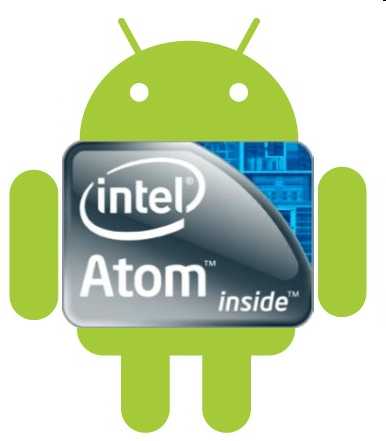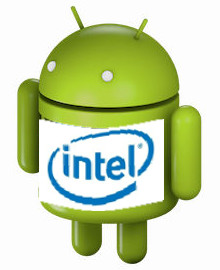| Intel's 64-bit Android |
| Written by Mike James | |||
| Monday, 13 January 2014 | |||
|
Intel has been making inroads into Android for some time and now it is ready with a 64-bit version and a processor to go with it. It is a matter of history that Intel missed its chance when the world moved to mobile devices, losing out to the lower power and cheaper ARM processor. Ever since it has been making efforts to regain lost ground. After making contributions to the 64-bit version of Android 4.4 for some time, it is now ready to release the final version.
The effort is all in aid of the soon-to-be-released, very low power Atom 64-bit chip, codenamed Merrifield. This is designed to make Intel phones more attractive, but there is also an Intel push into tablets in the form of the 64-bit Atom processor, codenamed Bay Trail. This should be available early this year and is also ideal for the new 64-bit Android. Intel estimates that the new tablets should cost around $150. One of the first manufacturers to announce a device is Fuhu with their 8-inch and 12-inch Android KitKat "kids" DreamTab tablet.
Changes in the 64-bit version of Android are restricted to the Linux Kernel; the rest of the system still seems to be 32-bit. Exactly what Intel has been up to isn't clear because the Linux kernel has supported 64-bit architectures for some time. From the point of view of apps what would be required to make things go faster is a 64-bit version of the Dalvik virtual machine. Given the majority of apps don't make use of native code this would be sufficient to make most things effectively 64-bit. The only published explanation of what Intel is doing to date is: "64 bit kernel support for Android to enable increased system memory and to pave the way for Ultra-HD video in mobile devices."
At the moment only a few phones, notably the iPhone 5S, are 64-bit and it still isn't clear that going 64-bit has a huge advantage. What is really interesting is that Intel has already managed to get programmers used to the idea that ARM is not the only Android processor by providing lots of software for free. Its Atom Android image combined with the HAXM accelerator is a much faster emulator than the ARM-based versions Google provides as the default. As a result a lot of Android programmers are already very comfortable with the idea of their apps running on Intel hardware - after all its where they are first tested! Intel also has a lot of other interesting Android software, Beacon Mountain IDE and its C++ Compiler for Android for example, but these haven't made much of an impact as yet. It is clear however that in the coming year "Intel Inside" isn't going to mean "Windows on top" and WinTel is transmuting into AndTel.
More Information
Related ArticlesIntel's XDK Free Web App Dev System Updated Intel's C++ Compiler For Android Intel Beacon Mountain For Android Intel Announces New Dev Suites Intel pushes HTML5 for Cross Platform Development
To be informed about new articles on I Programmer, install the I Programmer Toolbar, subscribe to the RSS feed, follow us on, Twitter, Facebook, Google+ or Linkedin, or sign up for our weekly newsletter.
Comments
or email your comment to: comments@i-programmer.info
|
|||
| Last Updated ( Monday, 13 January 2014 ) |





